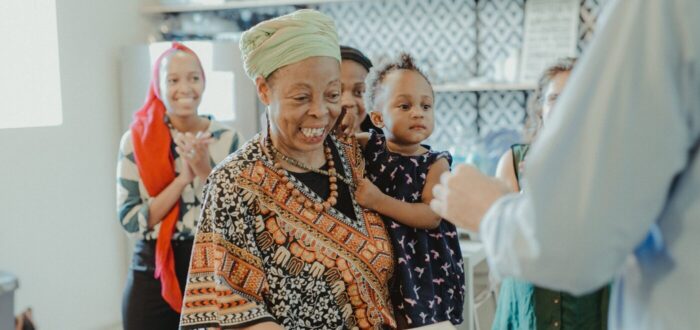
Lifting up female expertise and voices in literature
It is critical to lift up women’s expertise and voice in literature. Thanks to the work of female authors, the world can better understand both the brilliance and triumphs of women in America. The Solutions Project is excited to share some of the most accomplished literary solutionaries for past and present.
Keeanga-Yamahtta Taylor
The Combahee River Collective, a path-breaking group of radical black feminists, was one of the most important organizations to develop out of the antiracist and women’s liberation movements of the 1960s and 70s. In this collection of essays and interviews edited by activist-scholar Keeanga-Yamahtta Taylor, founding members of the organization and contemporary activists reflect on the legacy of its contributions to Black feminism and its impact on today’s struggles.
Mary Pipher
In Reviving Ophelia, Mary Pipher offered a paradigm-shattering look at the lives of adolescent women. Now Pipher is back with another ground-breaking examination of everyday life, this time exploring how to conquer our fears about the major environmental issues that confound us and transform them into a positive force in our lives.
Alicia Garza
An essential guide to building transformative movements to address the challenges of our time, from one of the country’s leading organizers and a co-creator of Black Lives Matter
Naomi Klein
In No Is Not Enough, Naomi Klein explains that Trump, extreme as he is, is not an aberration but a logical extension of the worst and most dangerous trends of the past half-century. In exposing the malignant forces behind Trump’s rise, she puts forward a bold vision for a mass movement to counter rising militarism, nationalism, and corporatism in the United States and around the world.
Mary Robinson
Holding her first grandchild in her arms in 2003, Mary Robinson was struck by the uncertainty of the world he had been born into. Before his fiftieth birthday, he would share the planet with more than nine billion people–people battling for food, water, and shelter in an increasingly volatile climate. The faceless, shadowy menace of climate change had become, in an instant, deeply personal.
Catherine Coleman Flowers
MacArthur “genius” Catherine Coleman Flowers grew up in Lowndes County, Alabama, a place that’s been called “Bloody Lowndes” because of its violent, racist history. Once the epicenter of the voting rights struggle, today it’s Ground Zero for a new movement that is Flowers’s life’s work. It’s a fight to ensure human dignity through a right most Americans take for granted: basic sanitation.
Robin Wall Kimmerer
Drawing on her life as an indigenous scientist, and as a woman, Kimmerer shows how other living beings—asters and goldenrod, strawberries and squash, salamanders, algae, and sweetgrass—offer us gifts and lessons, even if we’ve forgotten how to hear their voices. In reflections that range from the creation of Turtle Island to the forces that threaten its flourishing today, she circles toward a central argument: that the awakening of ecological consciousness requires the acknowledgment and celebration of our reciprocal relationship with the rest of the living world.
Christiana Figueres & Tom Rivett-Carnac
In The Future We Choose, Christiana Figueres and Tom Rivett-Carnac–who led negotiations for the United Nations during the historic Paris Agreement of 2015–have written a cautionary but optimistic book about the world’s changing climate and the fate of humanity.
Anna Lappe
With seven principles for a climate-friendly diet and success stories from sustainable food advocates around the globe, she offers a vision of a food system that can be part of healing the planet. An engaging call to action, Diet for a Hot Planet delivers a hopeful message during troubling times.
Shalanda Baker
Revolutionary Power is a playbook for the energy transformation complete with a step-by-step analysis of the key energy policy areas that are ripe for intervention. Baker tells the stories of those who have been left behind in our current system and those who are working to be architects of a more just system.
Angelou Ezeilo
Revealing the deep and abiding interest that African American, Latino, and Native American communities―many of whom live in degraded and polluted parts of the country―have in our collective environment, Engage, Connect, Protect is part eye-opening critique of the cultural divide in environmentalism, part biography of a leading social entrepreneur, and part practical toolkit for engaging diverse youth.
Ayana Elizabeth Johnson & Katharine K. Wilkinson
There is a renaissance blooming in the climate movement: leadership that is more characteristically feminine and more faithfully feminist, rooted in compassion, connection, creativity, and collaboration. While it’s clear that women and girls are vital voices and agents of change for this planet, they are too often missing from the proverbial table. More than a problem of bias, it’s a dynamic that sets us up for failure. To change everything, we need everyone.